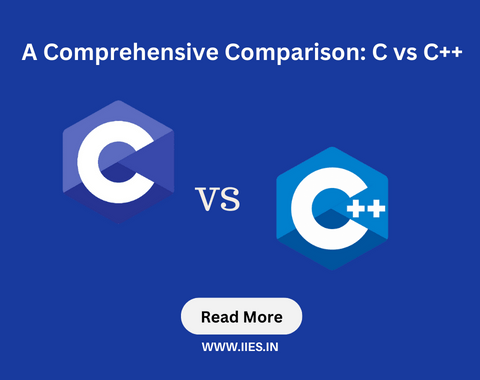C: C is a procedural programming language that emphasizes sequential, step-by-step execution of blocks of code. It does not support complex abstractions and is not an ideal language for building large-scale systems.
C++: C++ is an object-oriented programming language with concepts including classes, objects, inheritance, and polymorphism. C++ supports abstraction, encapsulation, and modularity, allowing for easier code maintenance and reusability.
Memory Management
C: C provides manual memory allocation using pointers, which enables direct memory manipulation. This approach requires developers to manage memory, leading to memory leaks and segmentation faults, which are common errors that can lead to program crashes.
C++: C++ introduces new and delete operators, which automatically manage memory. Additionally, C++ uses constructors and destructors for automatic memory management to avoid memory leaks and crashes. C++ also utilizes smart pointers, which handle dynamic memory allocation and prevent memory-related errors that cause program instability.
Standard Libraries
C: C provides standard library functions for basic operations such as input/output formatting and string manipulation. However, it does not offer a robust library for data structures, algorithms, or standard templates.
C++: C++ features a sophisticated Standard Template Library (STL) that provides a range of dynamic data containers and algorithms. The STL makes it easier to manipulate complex data structures and implement algorithms.
Performance and Efficiency
C: C is a lightweight language that emphasizes low-level system programming, making it highly efficient and fast. It has minimal runtime overheads due to the absence of OOP features and abstractions.
C++: C++ has a slightly higher runtime overhead due to its intricate features such as constructors, destructors, classes, objects, and OOP concepts. Nevertheless, it is highly optimized and can balance between performance and advanced features.
Application Domains
C: C is primarily used for system-level programming, including kernel and operating system development, low-level hardware interface, and embedded systems. It is also common in security and cryptography domains, where memory management is crucial.
C++: C++ is used in a wide range of application domains, including software development, game development, graphics, simulations, and machine learning. Its OOP features make it easier to develop large-scale software and manipulate complex data structures.
Community and Resources
C: C has been in existence for decades and has a large and established community of developers. There are numerous tutorials, books, online forums, and resources on C programming development to help new and experienced programmers.

